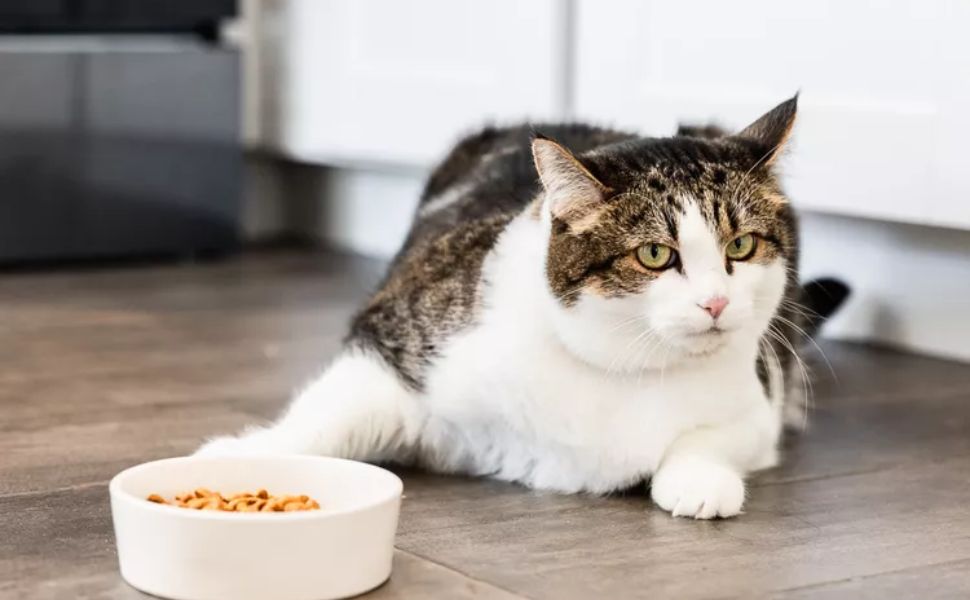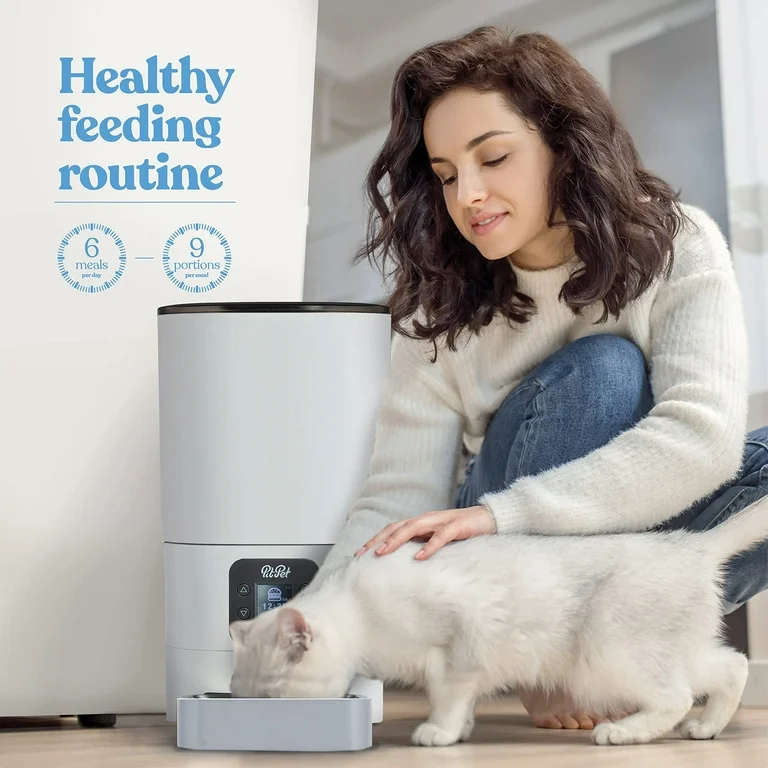Cats are known to be fussy eaters, but when your furry kitty suddenly loses interest in food, it is alarming. Whether it is minor or a sign of something else, in a cat, refusal to eat is scary enough. Here are the reasons why, things to look out for, and things you can do to get the lost appetite back into your kitty again.

This See: Best Cats Food
Understanding Why Your Cat Needs Healthy Appetite
A cat’s appetite is not a way of simply filling the belly. It is an indicator of a cat’s health. Whenever your cat stops eating, it usually indicates that something is wrong. Unlike humans or even dogs, cats will not go long periods without food before serious health complications appear. Here, let’s dive deeper into why a healthy appetite matters.
Cats are metabolically very efficient, and usually they should eat quite often to maintain stable energy levels. Missing a meal for a cat can cause “fatty liver disease,” potentially fatal condition known as hepatic lipidosis. Therefore, loss of appetite should not be ignored, because it is usually an early indicator of some kind of medical condition.
Related: Top 5 Must-Have Ingredients for Healthy Cat Food
Causes of Lost Appetite in Cats
While many factors may be simple or seem quite inconsequential, several will cause a cat to lose their appetite altogether. Now, listed and summarized below are some of the most common reasons your cat might just turn up its nose at the food bowl.
1. Medical Issues
When a cat refuses to eat, medical conditions are usually the first place to begin your inquiry. Cats are typically masters of concealing pain or anything averse to their nature, so that loss of appetite may be their subtle way of signaling that something is wrong.
Dental Issues
Tooth pain, gum disease, or even a loose tooth can cause cats a lot of suffering when eating. Any trouble chewing or apparent food drooling from the mouth could be related to a dental problem. Regular follow-ups with your veterinarian can catch some of these issues before they get worse.
Digestive Disorders
A cat with GI problems, for example IBD or constipation may not eat due to nausea or discomfort. The common symptoms that can be related to digestive issues include vomiting, diarrhea, or distension accompanied by a lack of interest in feeding.
Kidney and Liver Diseases
Both kidney and liver diseases are common in older cats that cause nausea and loss of appetite. Some may feel nauseous and decline food because their kidneys become weak to filter waste products, among other examples. Regular veterinary tests enable early detection of these diseases.
Infections
All types of infections: viral, bacterial, or parasitic can make a cat ill and unhappy and bored with eating. Among the most common culprits include respiratory infections that may impair sense of smell in cats, and gastrointestinal infections that often trigger nausea. Vaccine administration and control of parasites decrease these risks.
Related: Dry vs. Wet Cat Food: What’s the Best Choice for Your Cat?
2. Emotional and Psychologic Factors
Cats are relatively sensitive pets. Simple changes can drastically influence their behavior, including eating.Change Stress Cats are creatures of habit, and even small changes, such as introducing a new piece of furniture, a guest to the home, or a new location, can stress a cat out. Stress can suppress an appetite and in some cats, completely halt eating until they feel safe again. This issue can be assisted with a calm and predictable environment.
Anxiety Depression
Just like humans, cats can become anxious or depressed, in which case, their appetite will change. A change of pet partner or the addition of a new pet could cause these emotional reactions. Seasons may also lead to such reactions. If you believe your cat has become withdrawn and has not done things it enjoyed doing before, seek professional attention because this may be a sign of emotional upsets.
Sensory Elements
Cats use their noses, frequently their most sensitive sense, when they’re eating. If they are losing their sense of smell as can happen, for example, with upper respiratory infections, they lose interest in eating. Medical treatment to resolve the respiratory infection may resolve the problem.
3. Diet Changes and Preferences
Sometimes, though, it’s not a medical or an emotional issue-it might just be your cat’s diet.
Changing Foods Too Abruptly
Cats are finicky eaters when it comes to their food preferences. They would refuse to eat if their brand of food or the type has just been changed. Transitioning slowly from one food to another within a period of 7-10 days might prevent this as your cat will have time to get used to the smell and feel of the new food.
Food Temperature and Texture
Believe it or not, most cats prefer their food at specific temperatures. For instance, the presentation of wet food can be made more appealing by a slight warming up. Yet again, a cat so used to dry kibble but now will have a problem with wet food and vice versa due to texture, which can be enough for them to maintain their distance. You can try a variety of different temperatures and textures around to observe your cat’s preference.
Spoiled or Old Food
Cats are creatures of keen smell, and refuse to eat anything past its prime. Ensure that whatever you feed them is fresh, well stored, and has not gone bad. Of course, you must continually wash their food and water bowls regularly. Stale remnants of old food are very unappealing to a cat.
Related: 180 Food Names for Cats
What to Look for When Your Cat Stopped Eating
Whenever a cat is losing its appetite, we must look out for other symptoms that may attend it. Below are the possible signs and symptoms which, in the case of losing its appetite, might call for a visit to the vet:
- Lethargy or energy loss
- Vomiting or gagging frequently
- Diarrhea or constipation
- Behavioral signs such as pawing at the mouth or excessive drooling
- Drinking more or less than usual, suggesting signs of dehydration or a condition affecting the kidneys
- If these symptoms arise with your cat’s loss of appetite, it is a good idea to schedule a consultation with your vet.
Ways to Make Your Cat Eat Again
Forcing a cat back into an eating habit is nothing if not a trial and error and patience process. The following have worked for many cats as a means of becoming interested in eating again:
Use Several Varieties of Food
Feed your cat different kinds of food like wet food, dry kibble, and special treats. It might help shock a cat’s palate for food if they get used to eating different textures and flavors. Some cats love the flavor of tuna or chicken, but those should be served sparingly as a reward.
Make Meals Convenient
Prepare a quiet room for feeding or make sure that feeding time is away from noisy appliances or other pets that might hamper your cat during mealtime. Cats feel most secure in calm environments, which might make eating a more appealing activity.
Try Warming the Food
Warm it up if your cat is accustomed to wet food. Warm food smells much stronger, making it even more tasty to eat for your kitty. Do not overheat it as it might give your cat a burnt mouth. You can test it with your finger first before you feed your kitty.
Add Cat-Attracting Supplements
Reluctant to eat? Available supplements or appetite stimulants can be purchased at pet stores or through your veterinarian. Catnip, bone broth, or even a little bit of baby food (onion and garlic free) may serve as a temporary enticement to encourage the appetite once again.
When to See Your Veterinarian
Your cat must see a vet if they don’t eat within 24 hours or aren’t acting like themselves. Prolonged lack of appetite leads to starvation and dehydration, which can become fatal if not addressed. Your vet may then decide to run some diagnostic tests, write out an appetite stimulant, or other treatments on what the source of the problem is.
Frequently Asked Questions
- How long can a cat survive without eating?
Cats can go for roughly 24 hours without food, at which point the potential for serious medical issues, including hepatic lipidosis, increases greatly. If your cat hasn’t eaten in a day or more, have her examined by your veterinarian. - Does stress really make my cat lose her appetite?
Indeed, cats are very sensitive to stress, and any change in environment might lead to anorexia. A peaceful environment and minimal change can be effective at keeping the risk level low. - Should I force feed my cat if he’s not feeling like eating?
Forcing your cat to eat is generally not recommended unless a vet prescribes it because this may stress and traumatize him. There are other ways of stimulating the cat’s appetite or see the vet if this continues.






